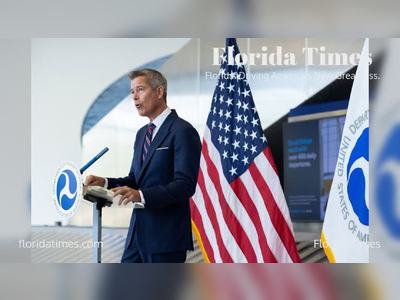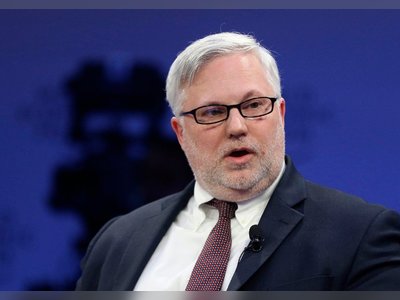Bill Gates at 70: “I Have a Real Fear of Artificial Intelligence – and Also Regret”
Bill Gates, the man who built Microsoft and became a symbol of technological innovation and philanthropy, turns seventy today and looks back with clear-eyed reflection. The veteran technological optimist admits his astonishment at how the world shaped by technology has evolved and does not hold back from criticizing the phenomena he failed to foresee.
Coinciding with the release of his first memoir, Source Code: My Beginnings, Gates has given a series of interviews across media outlets, podcasts, and television programs. He discusses what surprised him about the new generation of tech billionaires, his views on the negative impact of social networks, and his strong aversion to cryptocurrency.
The memoir, set for publication in February, is the first of three planned volumes and marks a significant shift for Gates. For half a century in the public eye, he rarely discussed his private life, focusing instead on solving global issues. But the passing of his father and crossing the age of seventy have led him into a period of deep introspection, during which he revisited old photos, family documents, and early computer code printouts.
The book recounts Gates’ early life—from his privileged childhood in Seattle to the founding of Microsoft. He describes himself as a “mischievous, sometimes difficult” child who defied his parents in pursuit of independence. He recalls days of silent rebellion, ignoring his parents’ requests to clear the table, noting that if he were diagnosed today, he would likely be considered on the spectrum.
Gates reveals the pivotal moment when he decided to found Microsoft with Paul Allen in December 1974, after Allen burst into his Harvard dorm room holding a Popular Electronics magazine featuring the first personal computer, the Altair 8800. The two instantly realized that software would change the world.
A no less defining personal moment, Gates writes, was the tragic death of his close friend Kent at age sixteen during a mountain climbing accident. The experience taught him that “life can be unfairly bad just as it can be unfairly good,” and that he himself was immensely fortunate.
Once the archetype of the “aggressive” tech billionaire of the 1990s and the world’s first centibillionaire in 1999, Gates now presents himself as a counterbalance to figures like Elon Musk and Mark Zuckerberg. He admits with modest relief that he is “not at the top of the list of billionaires who provoke strong negative reactions.” With some humility, he adds, “When you’re a billionaire, people project immense power onto you. Success in one field makes people think you’re good at many things you’re not.” It is, in effect, a warning to the current generation of billionaires who frequently comment on issues beyond their expertise.
Gates notes a sharp contrast between his own generation—the once-despised tech moguls of the 1990s—and today’s billionaires, who actively seek political power and influence. He also admits to being surprised by Silicon Valley’s political transformation: “I always thought Silicon Valley leaned center-left,” he says. “The fact that there is now a significant right-of-center group is a big surprise to me.”
Nevertheless, he emphasizes that billionaires are not a “club” and seldom agree among themselves. Gates, whose personal fortune Forbes estimates at about one hundred and six billion dollars, was financially active in the last U.S. election, donating fifty million dollars to “Future Forward,” a group supporting Kamala Harris’s campaign. He remains a strong advocate of progressive taxation, arguing that billionaires should be taxed far more heavily. By his own estimate, under a better system, he would have paid around forty billion dollars in taxes rather than the fourteen billion he actually paid.
“Incredible things happened because of information sharing on the internet,” Gates says, while acknowledging that he did not foresee the problems that would follow. He even concedes that historian Yuval Noah Harari was right in his critique, noting that people like him once assumed that unlimited information sharing was inherently good.
“Information sharing on the internet,” Gates reflects, “was everyone’s vision.” But what he failed to predict, he says, was the “sickness” that emerged with social media platforms like Facebook and Twitter—later rebranded as X—which amplified political polarization and turned technology into a weapon against the public good.
This leads him to the era of artificial intelligence. Although a self-described AI optimist, Gates outlines three major concerns about the technology and stresses the need for responsible regulation. His foremost worry is the potential militarization of AI. He urges investment in AI-based defense technologies to “ensure the good guys have AI that can defend against hostile actors.”
His second concern is the impact of AI on the job market. Describing the pace of change as “frightening,” Gates cites a Goldman Sachs report estimating that AI could disrupt around three hundred million jobs worldwide in the coming years. He predicts that within a decade, the five-day workweek may become obsolete, replaced by a two- or three-day schedule as AI takes over more human tasks.
The third concern involves losing control over advanced systems, particularly in a scenario of artificial general intelligence surpassing human intelligence. As for cryptocurrencies, Gates remains firm: he sees no “use” for them and believes that “some very smart people have deceived themselves on this matter,” possibly hinting at Musk, a known crypto enthusiast.
Despite never before writing about himself, Gates plans to continue his personal journey. The second volume of his memoirs will cover his Microsoft years—from the fierce competition of the 1990s, including his battles with regulators and Windows’ dominance, to his resignation as CEO in 2000 and subsequent role as chief software architect until 2008. A third volume will focus on his philanthropic work with the Gates Foundation.










